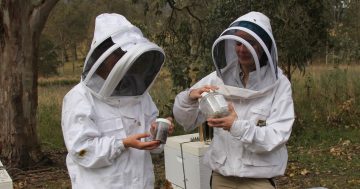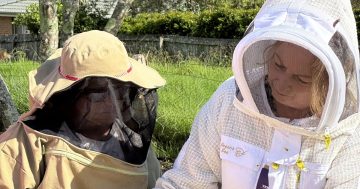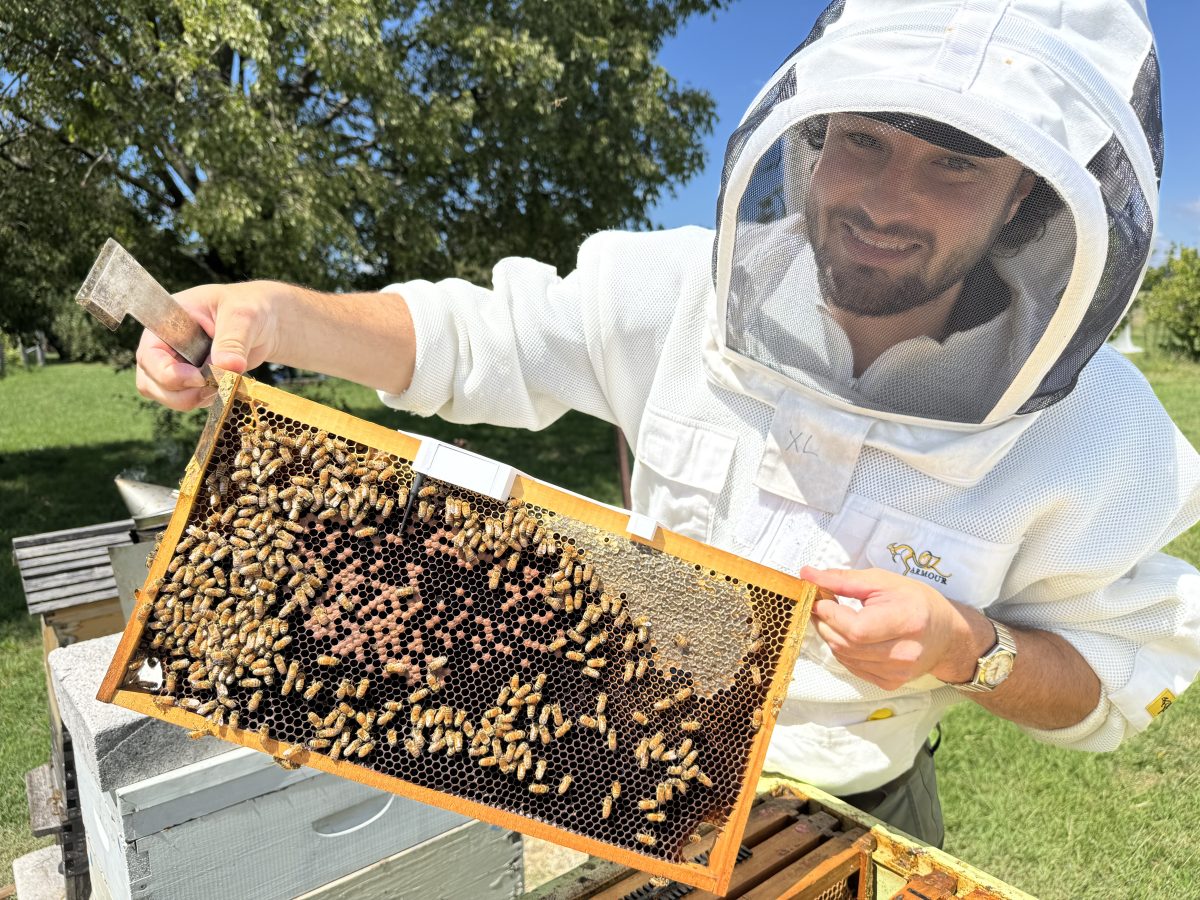
It’s hoped a trial in the ACT and NSW will show the success of the smart ‘BeeRight’ technology in detecting varroa mite. Photo: Supplied.
Canberrans have been chosen to take part in a trial which is aiming to change the way diseases are detected in bee hives.
As the apiary industry faces threats from varroa mite, a new technology is being trialled which would turn any hive into a self-monitoring smart hive.
Joel Kuperholz is the CEO and co-founder of Vimana Tech, which has developed the ‘BeeRight’ system.
It’s designed to be low-cost and scalable, and can let beekeepers know if their hives are healthy and active, how their queens are faring, honey levels, and if there are any biosecurity concerns or diseases present – without having to pull the hive apart.
“In order to save the bees, we believed that we had to help save the beekeeper,” Mr Kuperholz said.
“In order to do that, it means helping beekeepers manage more hives more efficiently … [This technology means] instead of doing ad hoc inspections and drive out to manually inspect that hive … you can actually monitor it and get day-by-day information.”
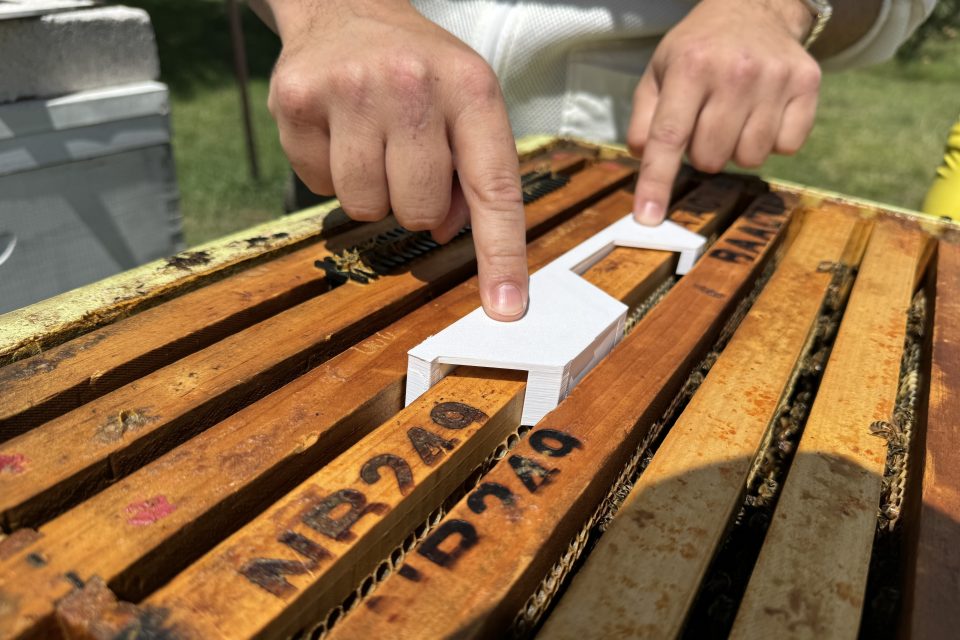
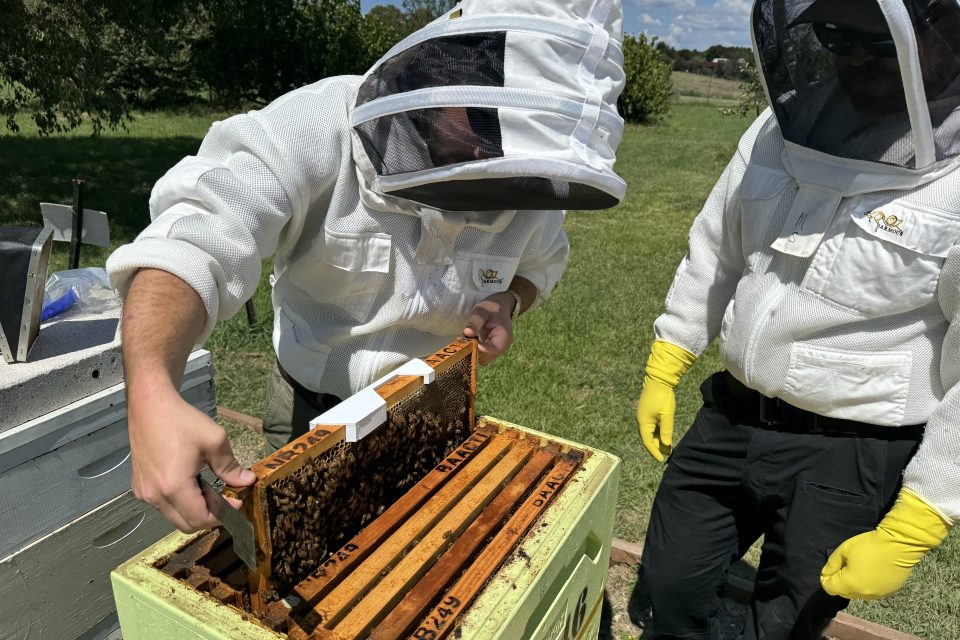
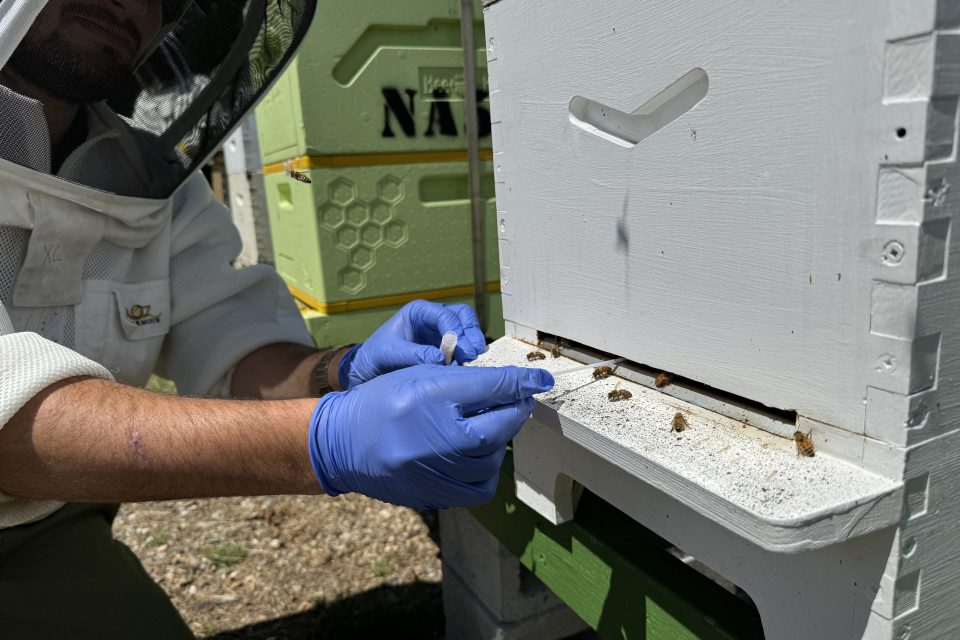
One part of the device slips onto the top of the hive, while the smart component is run by solar power and sits on the outside.
Mr Kuperholz said while this technology was first designed to help commercial beekeepers manage their hives more efficiently, it’s hoped this will be accessible to hobbyists and private hive owners as well.
“We have the beekeeper at the forefront of our mind, but hobbyists are really important as well. They might not have the wealth of experience that a lot of commercial operators have and they may want a little bit of help managing their hive,” he said.
“As we went on that journey … we were able to realise this product can help in the management of varroa going forward.”
Australia is no longer trying to eradicate varroa mite, which arrived on our shores in June 2022.
A management plan has been approved with varroa development officers (VDOs) to work directly with beekeepers over the next 24 months.
Beekeepers have different opinions about how they want to treat their hives and which varroa mite detection methods they’d like to use. Most methods kill about one per cent of the bees each time.
At a government monitoring level, there are also questions about how much self-assessed inspections can be trusted.
Mr Kuperholz hoped this technology would provide a level of confidence and trust for both parties.
“This breaks norms that have existed for 30-, 40-plus years. Reading academic papers from the 70s, 80s, 90s, they all touch on alcohol washes and that’s still the known thing [to test for diseases],” he said.
“In the 70s we didn’t even have seatbelts in cars, so innovation and need for increasing safety standards exist so much in our world, and it’s really important we take that … into agriculture.”
It could also bring more reassurance to ‘pollinator rentals’ as hives are moved across the country to pollinate crops, such as almond trees.
The technology’s trial has been picked up by the Federal Department of Agriculture, Fisheries and Forestry.
The ACT will be used as the trial’s ‘clean’ site, as it’s known to be varroa mite free. Another pilot will be run in Kempsey in northern NSW, which is known to have the disease.
Known varroa mite detection methods and their detection rates – such as alcohol washes, sugar shakes and sticky mats – will be compared against this data.
Beekeepers who take part in the trial will be expected to take environmental DNA (eDNA) samples and submit them as part of the 10-week trial.
The University of Canberra is also on board to process the data, before the final report is written by scientists with the CSIRO assessing BeeRight’s potential to detect varroa mite.
ACT Biosecurity Coordinator Kirsten Tasker said her team would help install the devices and chase up the collection of samples in Canberra.
She also reassured the community the Territory was protected against varroa mite.
“We are still testing by other means as well, so our beekeepers are still doing alcohol washes and sugar shakes to prove freedom from varroa for the time being,” Ms Tasker said.
The report is expected later this year.
Original Article published by Claire Fenwicke on Riotact.






